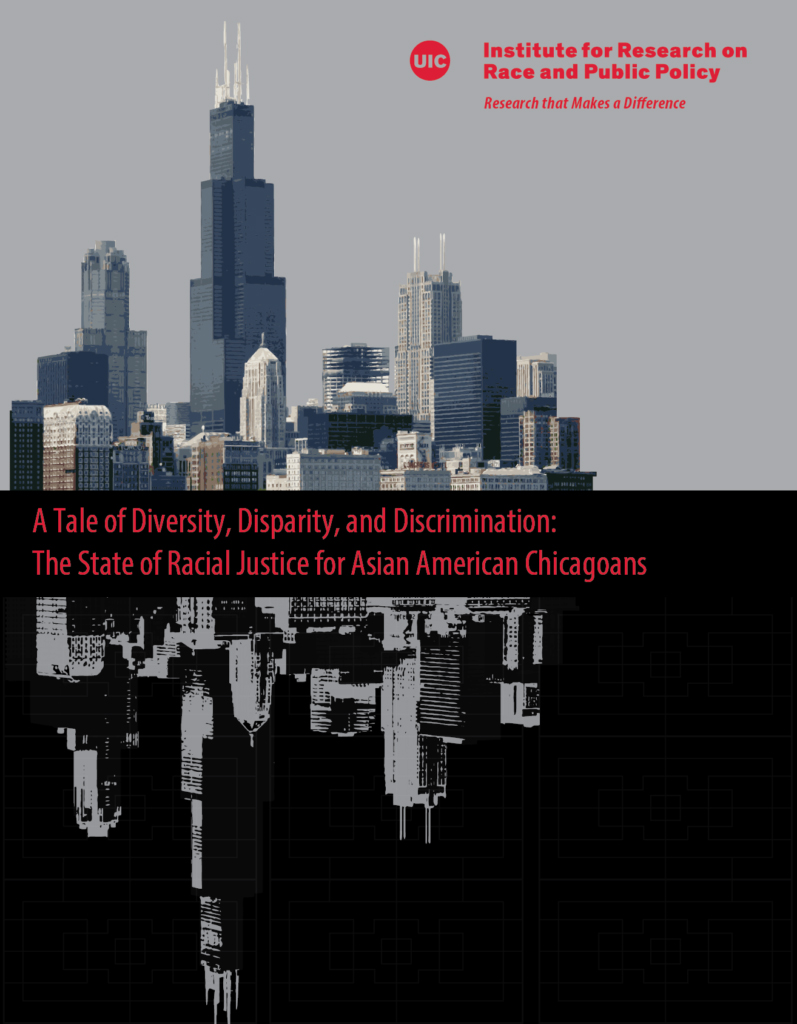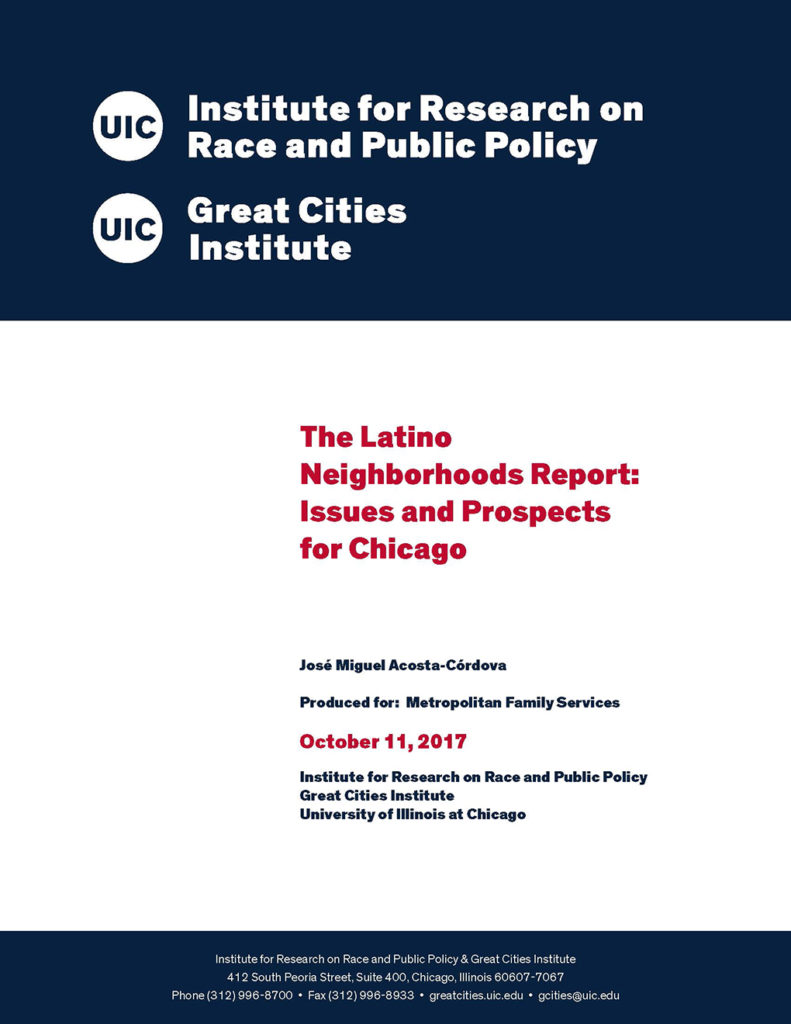Relatively little attention has been directed to documenting the experiences of racial discrimination and inequities for Asian Americans in Chicago. In this report, we examine the state of racial justice for Asian Americans in Chicago. The data in this report illustrate the diverse and often divergent experiences of Asian Chicagoans who have to navigate the complexity and contradiction of model minority and forever foreigner stereotypes. Asian Americans are both imagined as hard working and high achieving, and at the same time are often treated as permanent outsiders. A central finding of this report is that while diversity is a defining characteristic of this pan-ethnic group, racial inequities affect the opportunities and life experiences of all Asian American Chicagoans. Read more…
Chicago’s largest racial and ethnic groups—blacks, Latinxs, and whites—each makes up roughly one-third of the city’s population. As this report reveals, these groups generally live in separate neighborhoods and have divergent experiences when it comes to housing, economics, education, justice, and health. Capturing life in Chicago today is in many ways a tale of three cities.
The central finding of this report is that racial and ethnic inequities in Chicago remain pervasive, persistent, and consequential. These inequities affect the lives of Chicagoans in every neighborhood; they have not just spatial but also deep historical roots and are embedded in our social, economic, political, and cultural institutions; and they have powerful effects on the experiences and opportunities of all Chicagoans. Read more…
The Latino Neighborhoods Report: Issues and Prospects for Chicago presents demographic characteristics of Latinos in Chicago, examines the neighborhoods with a majority Latino population, and finds that opportunities and services for Latinos are not keeping up with the population’s growth. The report was released by the Institute for Research on Race and Public Policy and UIC’s Great Cities Institute, and developed for Metropolitan Family Services. Read more…


